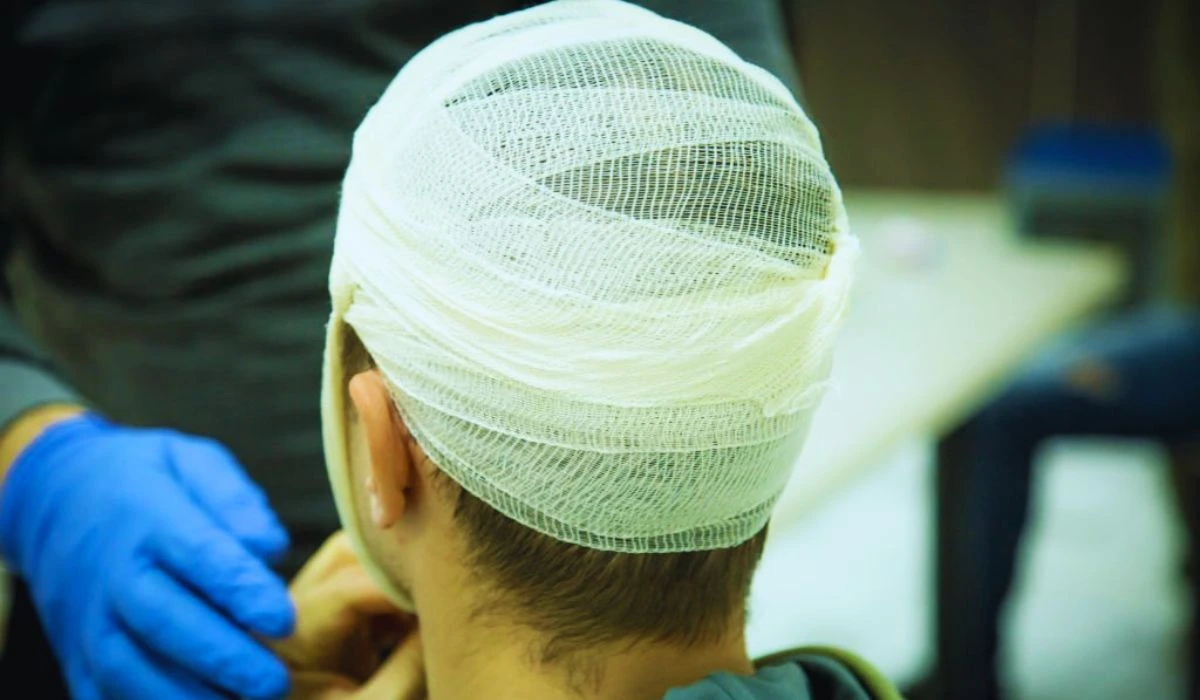Concussions are one of the most common brain injuries, with over 1 million occurring annually in the United States. A concussion occurs when the head hits or gets hit by an object causing the brain to move back and forth inside the skull. This impact causes chemical changes and damage to brain cells.
Concussions are usually not life-threatening but can cause serious symptoms that require prompt treatment and monitoring. Knowing how to recognize the signs and symptoms of a concussion is critical for diagnosis and management. This article provides an overview of what a concussion is, the common signs and symptoms following the injury, treatment options, and frequently asked questions.
Understanding Concussion
A concussion is a mild traumatic brain injury caused by a bump, blow, or jolt to the head. They are common sports injuries but can happen to anyone from a fall, motor vehicle accident, or blow to the head.

When the head is hit, the brain moves back and forth forcefully inside the skull, stretching and damaging brain cells and creating chemical changes. This injury causes the brain to not function normally temporarily. Concussions are serious because the effects are not always apparent and the damage cannot be seen on standard imaging tests like CT or MRI scans.
What Are The Symptoms Of A Concussion?
The signs and symptoms of a concussion can appear immediately after the injury or develop over the next hours or days. The most common symptoms include:
- Headache or feeling pressure in the head
- Nausea and vomiting
- Dizziness, vertigo, or loss of balance
- Sensitivity to light and noise
- Ringing in the ears
- Feeling sluggish, foggy, or groggy
- Confusion and trouble focusing or concentrating
- Difficulty sleeping
- Changes in mood – feeling more irritable or emotional
People with a concussion may have trouble thinking clearly, remembering new information, and responding quickly to questions or directions. They can have behavioral changes like appearing dazed or stunned after the injury. Symptoms are usually temporary but can last for weeks or months.
When the symptoms last for more than 2 weeks, it may indicate a more severe injury called post-concussion syndrome. Recurring concussions before fully recovering can increase the likelihood of long-term effects. That is why it is crucial to rest and avoid reinjury after a concussion.
How To Treat Concussion?

The main treatment for a concussion is rest, both physical and mental. Activities that require concentration and focus may need to be limited until symptoms improve. Recommendations include:
- Get plenty of sleep at night and rest during the day as needed.
- Avoid physically demanding activities like sports, weight lifting, and running. Rest from all physical activity until symptoms resolve.
- Refrain from driving or operating heavy machinery if feeling impaired.
- Take time off work or limit work duties if needed.
- Avoid bright screens and loud noises that worsen symptoms.
- Stay hydrated and eat a balanced diet.
- Limit medications that worsen symptoms like sleeping pills, and antihistamines.
- Avoid alcohol while recovering.
Over-the-counter medications like acetaminophen can be used for headaches. As symptoms decrease, activity can gradually be increased but should be stopped if symptoms worsen again. Recovery time varies widely, so it is essential to work closely with your healthcare provider to safely return to normal activities. Repeat concussions before healing can result in prolonged symptoms, so it is essential to be completely recovered before returning to exercise, work, or sports.
Conclusion
Concussions are mild traumatic brain injuries that occur from a bump, blow, or jolt to the head that shakes the brain inside the skull. They cause a variety of symptoms including headache, dizziness, nausea, sensitivity to light and sound, confusion, and memory problems. Rest and limiting both physical and mental activities are the foundation of treatment.
Symptoms are usually temporary but can last for weeks or months. Recognizing the signs and symptoms of concussion allows early diagnosis and management to promote recovery. Concussions are common but can have serious effects, so head injuries should always be taken seriously. Being aware of the symptoms and getting proper treatment can help prevent the complications of this brain injury.
FAQ
A: Concussions are diagnosed based on reported symptoms as well as physical exam findings and neurological tests. There is no single diagnostic test. The doctor will evaluate symptoms, do a neurological exam testing reflexes and balance, and cognitive testing of memory and concentration. Imaging like CT or MRI scans are usually normal and not used to diagnose concussions.
A: Most people recover fully from concussions within 2 weeks. But some symptoms can last for months or longer. On average, youth and high school athletes recover in about 2-3 weeks. The recovery timeframe varies from person to person based on factors like age, medical history, and severity of injury.
A: There are steps that can help prevent concussions or reduce injury. Wearing protective gear during contact sports helps absorb force and prevent direct blows. Improving neck strength may limit sharp head movements. Rules enforcement and technique changes in sports also reduce risk. But concussions can happen unexpectedly, so their prevention is challenging.
A: In most cases, concussions do not cause permanent damage when adequately treated and the brain is given time to heal. But second impact syndrome or repetitive concussions before full recovery can result in lasting effects. Symptoms may not fully resolve and increase susceptibility to future injury. Concussions are brain injuries and should always be taken seriously to avoid complications.
A: Any mentally or physically demanding activities should be avoided after a concussion. This includes sports and exercise, driving, heavy coursework, video games, bright screens, and loud environments. Rest from all strenuous activity, both mental and physical, is key. As symptoms improve, activities can gradually resume but should be halted if any worsening of symptoms occurs.

